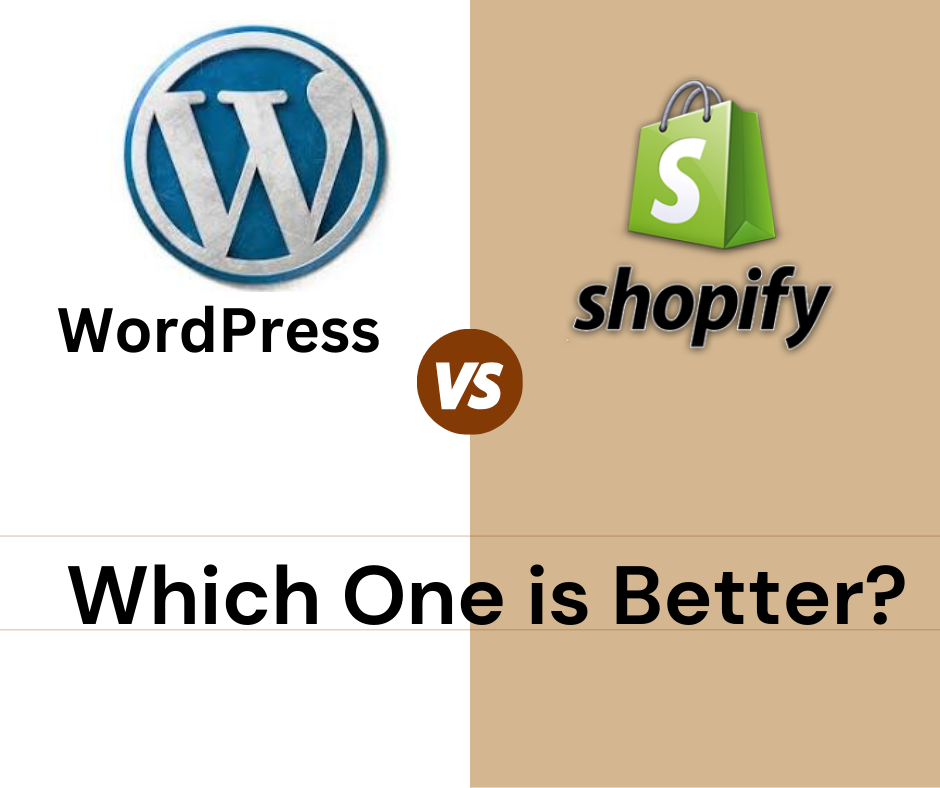Choosing the right platform for your online store is crucial for success. Two of the most popular options for ecommerce web development are Shopify and WordPress. Both offer distinct advantages and cater to different needs. This analysis will compare Shopify and WordPress in terms of website development and Search Engine Optimization (SEO) to help you make an informed decision.
Website Development
Ease of Use:
- Shopify: Shopify is known for its user-friendly interface. No coding knowledge is required to set up your store. It offers a drag-and-drop builder with pre-designed themes, making it easy to customize your store’s look and feel.
- WordPress: WordPress has a steeper learning curve compared to Shopify. While themes and plugins offer customization options, some technical knowledge might be needed to achieve a desired outcome. Hiring a web development agency specializing in ecommerce WordPress development can bridge this gap.
Flexibility and Customization:
- Shopify: Shopify offers a vast selection of themes in its app store, but extensive customization beyond theme options might require coding expertise or hiring a Shopify developer.
- WordPress: WordPress boasts unparalleled flexibility. Thousands of themes and plugins cater to every imaginable customization need. However, this flexibility comes with the responsibility of managing plugin compatibility and potential security vulnerabilities.
Scalability:
- Shopify: Shopify offers various plans that can scale with your business growth. Higher-tier plans provide features like increased bandwidth and abandoned cart recovery.
- WordPress: WordPress itself scales well. However, scaling an ecommerce store built on WordPress requires careful planning regarding hosting, security, and performance optimization. Consulting a web development agency experienced in ecommerce WordPress development can ensure smooth scaling.
Cost:
- Shopify: Shopify has a monthly subscription fee based on the chosen plan and transaction fees. This can be a predictable expense, but ongoing costs can add up over time.
- WordPress: WordPress is free to use, but there are associated costs like website hosting, domain registration, themes, and plugins. These costs can vary depending on your needs.
Search Engine Optimization (SEO)
Out-of-the-Box SEO Features:
- Shopify: Shopify offers basic SEO features like URL customization, product descriptions, and meta tags. However, advanced SEO functionalities might require additional apps or developer expertise.
- WordPress: WordPress is inherently SEO-friendly. There’s a vast ecosystem of SEO plugins available that can help optimize your content, manage sitemaps, and build backlinks, all crucial for search engine ranking.
Content Management:
- Shopify: Shopify’s primary focus is product management. While content creation is possible, it’s not as robust as WordPress.
- WordPress: WordPress excels in content management. Creating blog posts, landing pages, and informative product descriptions is easy, allowing you to establish yourself as an authority in your niche and attract organic traffic.
Developer Support:
- Shopify: Shopify offers limited developer support through its documentation and forums.
- WordPress: WordPress has a massive and active developer community. There’s a wealth of online resources, tutorials, and forums to help you troubleshoot issues or find solutions. Additionally, web development agencies specializing in ecommerce WordPress development can provide tailored support.
Choosing the Right Platform
The ideal platform depends on your specific needs and preferences. Here’s a quick guide:
- Choose Shopify if: You’re a beginner with no coding knowledge, prioritize ease of use, and have a clear vision for your store’s design.
- Choose WordPress if: You prioritize content marketing, extensive customization, and long-term scalability. You’re comfortable with some technical learning or have access to a web development agency experienced in ecommerce WordPress development.
Ultimately, both Shopify and WordPress are powerful platforms for ecommerce web development. By considering your priorities in terms of website development, SEO, and budget, you can make the best decision for your online store’s success.

